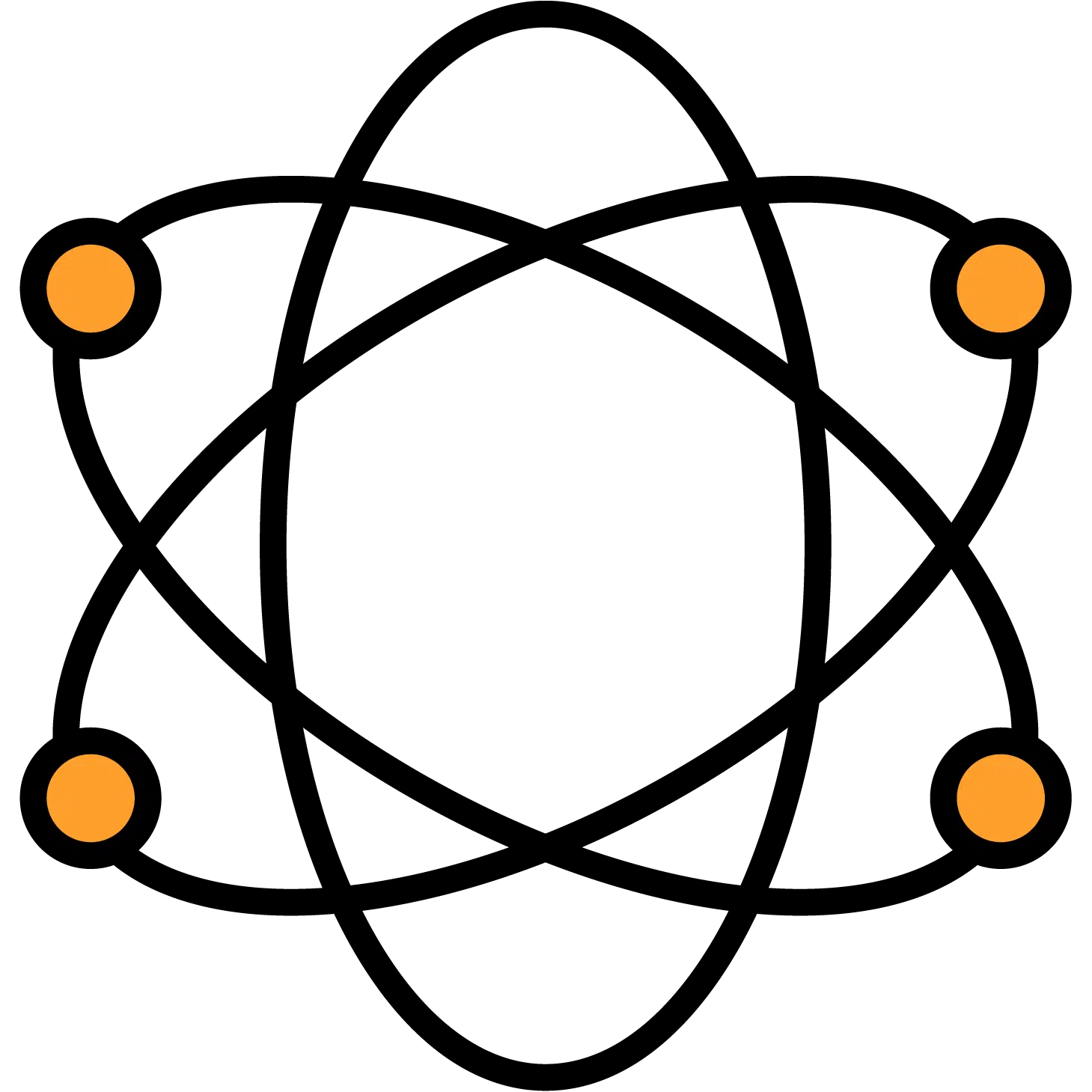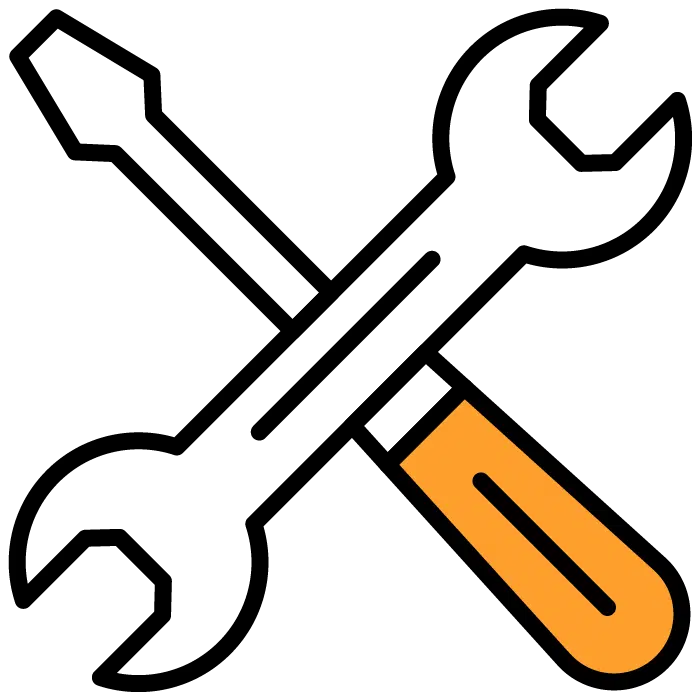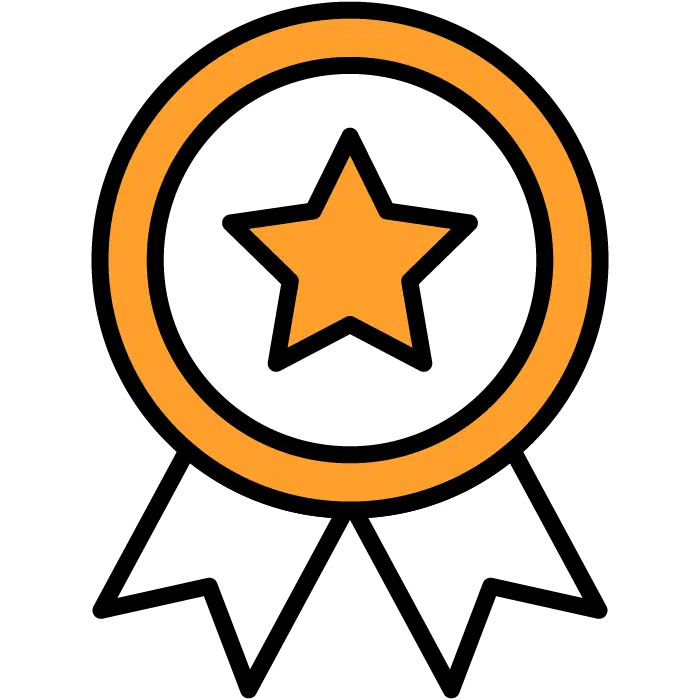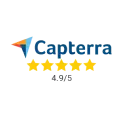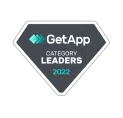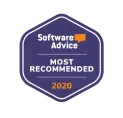Your day is packed full of phone screenings, you have 88 new LinkedIn messages to sort through, and your boss just told you that the critical new hire who already accepted the offer reneged and moved to Bali. (Head explode emoji feelings)
You need help, and fast. Where do you turn?
In this comprehensive guide we’ll dive into how artificial intelligence (AI) can optimize your recruitment process by significantly reducing time to hire and removing repetitive tasks that take up your already stretched bandwidth.
We'll explore how to use new AI-powered tools and techniques to streamline candidate sourcing, screening, and interviewing. We'll also discuss the benefits of incorporating AI recruitment tools into your hiring process, as well as tips on selecting the right AI recruiting tools for your organization.
Catch the AI wave and let’s transform your recruitment flow!
The Impact of AI on Recruitment
Even in small businesses, employers are rapidly adopting AI to significantly improve their hiring process. AI can slice out repetitive tasks, improve candidate experience and strategy, and cut down on bias. New tools like Ideal, Mya, Gloat, and Pymetrics are making big HR functionality accessible.
Helping With Repetitive Tasks
Manually screening resumes and scheduling interviews are probably the bane of your existence. Luckily, AI hiring tools can significantly reduce the time you spend on these drudgery-laden tasks by automating them.
This automation will free you up to focus more on the strategic aspects of hiring, such as engaging with candidates and making informed decisions. One AI hiring software tool that can help with these tasks is Discovered – Performance Hiring Software with AI features, which streamlines candidate sourcing, screening, and interview scheduling by creating literally all your hiring materials (branding, job ads, interview questions, and marketing) in minutes.
Enhancing Candidate Experience
AI recruitment software tools like Discovered and Mya can personalize job recommendations and streamline communication between candidates and recruiters, leading to a more satisfying and efficient job search experience. This in turn, fosters stronger relationships between organizations and potential employees, ultimately improving the quality of matches.
Improve Your Talent Acquisition Strategy
AI recruiting tools like Gloat offer insights backed by data to help optimize talent acquisition strategies. What AI recruitment software can do well is offer real-time insights into the labor market and help organizations identify talent gaps quickly. This enables companies to better align their recruitment efforts with business objectives and target top talent more effectively.
Ensuring Unbiased Hiring
One of the most exciting and impactful advances of AI in the hiring world is the ability to ensure a more objective and fair recruitment process by minimizing human bias. Data-driven algorithms can evaluate candidates based on their skills and qualifications, not their name and pedigree.
This skills-based approach promotes diversity and inclusivity in the workplace, minimizing human bias in recruitment. By leveraging AI hiring software tools like Pymetrics, organizations can assess candidates using neuroscience games and customized algorithms, ultimately reducing unconscious biases and fostering a more diverse workforce.

AI-Powered Recruitment Tools for Efficient Candidate Sourcing
Finding candidates can give you that old needle-in-a-haystack feeling, where you can see your time going down a massive, sucking hole of frustration and search. New AI hiring features in job board aggregators, talent sourcing platforms, and social media solutions can rescue your time and solve your talent search.
Job Board Aggregators
As you know, aggregating jobs from multiple sites manually takes up a lot of time and is a repetitive task most recruiters loathe. But — we’re in the age of AI and a few useful AI-powered job board aggregators are already popping up.
For example, ZipRecruiter’s Candidate Calibration tool uses AI data-crunching to deliver a large pool of potential candidates without spending countless hours manually searching through digital mountains of resumes.
AI recruitment tools like this gather job postings from multiple sources and offer advanced filtering options to help you find the best matches for your open positions, making the candidate sourcing process much faster and more efficient.
Talent Sourcing Platforms
Reviewing resumes can be like searching for a needle in a field of haystacks, and the exceptional candidate is rare to find. While this process can be fun at times, relying on AI recruiting software tools like Entelo and Hiretual when you’re under pressure can help you match job requirements with candidate profiles in just a few clicks.
Social Media Recruiting Tools
Everyone is using social media (specifically LinkedIn) for job postings. But there's more to recruiting with social than just posting links to job openings.
For example, you can automate the process of candidate sourcing and ongoing engagement. AI recruiting tools like Discovered, Jobvite and Beamery can scan social media platforms like LinkedIn, Facebook, and Twitter for potential candidates who match your job requirements, then once a candidate is identified, actively engage with them.
These tools can also track candidate interactions and provide insights into candidate behavior, making it easier for recruiters to identify the cream of the crop quickly. Additionally, some AI hiring software tools can analyze candidate social media profiles and provide personality insights, helping recruiters determine cultural fit too.
AI-powered Search Engines
Google isn’t going anywhere, but you should learn about specialized AI-powered search engines like HireEZ and SeekOut. They can help you find your next hire by searching the web for candidate profiles that match your job requirements and bringing them to your attention.
These search engines can crawl through multiple sources such as online portfolios, professional networking sites, and even Github. They can also analyze candidates' skills, experience, and education to provide recruiters with a ranked list of top candidates. This lets you rest assured that you cover all your bases and have done your very best to find your best candidate which will minimize potential candidate FOMO (fear of missing out).
The aspect I like the most about these tools is that they can help you identify passive candidates who may not be actively seeking new opportunities. These AI recruitment tools essentially help you be a more proactive recruiter with less work.

Streamlining Candidate Screening with AI
When you’re drowning in a sea of applicants, AI recruitment tools like resume parsing software, chatbots, interview schedulers, and skills assessments can help shine a spotlight on exceptional candidates.
Resume Parsing Software
AI-driven resume parsing software like Discovered, Zoho Recruit and TalentLyft can quickly analyze resumes and extract relevant information such as education, work experience, and skills. This tech lets you easily compare candidates and identify those who align with your job requirements, thus reducing the time you spend on screening.
What used to take hours can now happen in seconds. Again, this means you can spend more time on the fundamental aspects of recruiting: building relationships.
AI-powered Chatbots
AI-powered chatbots like Landbot can level-up your communication with candidates by automating tasks like answering FAQs, gathering basic information, and providing updates on the application process. This helps you by saving time and also improves the candidate’s experience by providing timely and consistent communication.
In the age of dopamine and instant gratification, using chatbots powered by AI will help you stay top-of-mind with candidates and avoid making them lose interest due to lack of immediate followup.
Automated Interview Scheduling
You’ve found the ideal candidate! Congratulations. Now comes the scheduling tango — a dance that can last for days, weeks, or months. This occasionally frustrating and time-consuming aspect of the recruitment process can be alleviated with AI scheduling tools like Calendly, especially if used in combination with the chatbot tools I showed you above.
These AI hiring tools can automate the process of scheduling interviews by syncing with your calendar, sending invitations to candidates, and handling rescheduling requests. It’s an extremely user-friendly interface that streamlines the whole process.
Skills and Personality Assessments
An area that’s becoming more standardized in hiring across all industries is the use of skills and personality assessments. New AI-powered assessments are an increasingly popular way to evaluate candidates, enabling you to paint an entire picture of who the candidate is at a more fundamental level.
AI can provide insights into skills, strengths, and even if the candidate is a potentially good cultural fit. These AI recruiting software tools offer a range of assessments, from cognitive ability and technical skills tests to assessments of personality traits and work-style preferences:
- The Hire Talent is the premiere pre-employment assessment tool on the market, using AI features to find top candidates based on the specific skills needed for the job.
- Harver is a pre-employment assessment platform that uses AI technology to match candidates with job roles based on their skills, personality, and aptitude.
- Pymetrics leverages neuroscience-based games and AI algorithms to assess candidate traits and predict job performance, providing unbiased, data-driven insights for hiring decisions.
- Plum is a talent management platform that uses AI and advanced psychometric assessments to identify candidates' potential and match them with roles that align with their strengths and abilities.
AI enables recruiters to focus on what they do best: building relationships with candidates and making strategic hiring decisions.

AI-Driven Interviewing Techniques
Interviewing takes up a lion-sized share of any HR team’s time, but automated video interviews and analytics can tame the beast and free up valuable hiring hours.
Automated Video Interviews
The goal with automated video interviews, besides saving time, is to help organizations remain unbiased when assessing job candidates. We’re specifically referring to unconscious bias that happens naturally. By leveraging AI technology, these interviews can evaluate various aspects of a candidate's performance, including their responses, body language, and overall communication skills.
Here are a few AI interview tools you can check out:
- Discovered delivers video interviewing tools, ATS, assessments, automated reference checking and other AI-integrated tools to predict future job performance before you make a hire.
- HireVue offers video interviewing, assessments, and conversational AI recruiting tools to streamline the recruitment process. It analyzes candidates' facial expressions, speech patterns, and word choice to provide an objective evaluation of their performance.
- MyInterview uses AI and machine learning algorithms to analyze candidates' responses, body language, and communication skills, to help you make data-driven hiring decisions.
- AllyO is an end-to-end AI recruitment platform that offers automated video interviews and assessments. Its technology assesses candidates' responses, voice clarity, facial expressions, and overall presentation to help recruiters identify top talent quickly.
- Talview offers video interviewing, online assessments, and behavioral insights. Its AI algorithms evaluate candidates' communication skills, facial expressions, and word choice to provide an unbiased assessment of their performance during the interview.
Automated video interviews provide an objective, data-driven approach to candidate assessment, helping your organization attract top talent and ultimately improve diversity.
AI-powered Interview Analytics
You can glean valuable insights into candidate performance during live interviews too, by using AI hiring software tools, similar to how the Terminator views his surroundings. By analyzing factors such as response quality, communication skills, and cultural fit, these tools can help you make better hiring decisions faster and in some cases in real-time.
By using machine learning algorithms and natural language processing, these AI recruitment tools can assess verbal and non-verbal cues, providing a comprehensive evaluation of a candidate's suitability for a role. Here are some notable AI-powered interview analytics tools:
- Humantic AI uses advanced natural language processing and machine learning algorithms to analyze candidate responses during interviews. It provides insights into their communication skills, emotional intelligence, and cultural fit, helping recruiters make more informed hiring decisions.
- Vervoe provides insights into candidates' performance during interviews, as well as their skills and cultural fit.
- Interview Mocha is a pre-employment assessment tool that offers insights into candidates' skills, knowledge, and behavioral traits. It uses advanced analytics to evaluate interview performance and help recruiters identify top talent more efficiently.
- XOR is an AI recruitment platform that provides real-time interview analytics, helping recruiters assess candidate performance across various dimensions, including communication skills, response quality, and cultural fit.
Virtual Reality (VR) Interviews
VR interviews are exactly what they sound like: an immersive experience that enables applicants to demonstrate their skills in a simulated work environment while wearing VR headsets. This novel approach enables you to evaluate a candidate's potential for success in the role without risking a lot of time and coordinated effort.
The industries that use this tool the most are:
- Technical and Engineering Roles will have candidates solve complex problems, navigate technical environments, or complete tasks in a simulated work setting using VR.
- Healthcare Professionals: surgeons or nurses, may undergo VR interviews to demonstrate their skills in a controlled, virtual environment that mimics real-life medical situations.
- Design and Architecture: VR interviews can help evaluate candidates' abilities to visualize, create, and modify 3D designs in a simulated environment, showcasing their design and spatial awareness skills.
If you’re interested in exploring VR-interviewing you might want to look into the offerings below. Some of them use AI to offer deeper insights.
- Discovered provides a one-way video interview platform that lets candidates record and upload their own video interviews, cutting down on time, money, and stress. A useful AI integration lets you create customized questions that assess the candidate’s skill level for key job skills in just minutes.
- Immerse is a VR training platform that can be adapted for virtual reality interviews, allowing candidates to showcase their skills in realistic work scenarios. Its AI-driven analytics provide insights into candidate performance as well.
- Vantage Point offers an immersive interview experience for training and assessment purposes.
- Uptale is a VR learning platform that enables organizations to create immersive experiences for training, onboarding, and assessment.
- Talespin is a spatial computing company specializing in VR and augmented reality (AR) training solutions.
This innovative approach to interviewing not only streamlines the hiring process but also helps identify top talent in a more interactive and dynamic way.
Sentiment Analysis Tools
Another consideration that isn’t as mainstream as some of the other AI hiring tools I’ve mentioned is the use of AI-driven sentiment analysis tools. These smart assessments can identify emotions and attitudes that may be indicative of a candidate’s potential fit within your company culture.
By leveraging natural language processing, machine learning, and other AI technologies, these AI recruitment tools can provide a comprehensive understanding of a candidate's emotional intelligence and interpersonal skills. Some cutting-edge sentiment analysis tools for recruitment include:
- Receptiviti is an AI-driven language and sentiment analysis platform that you can use during interviews to gain insights into candidates' emotions, attitudes, and communication styles.
- IBM Watson Tone Analyzer analyzes text data to identify emotions, social tendencies, and language style.
- ParallelDots offers AI-based sentiment by analyzing candidate responses to provide insights into their emotional state and overall disposition.
Choosing the Right AI Recruitment Software for Your Organization
There are so many useful AI recruitment tools on the market right now, you might be tempted to go on a buying spree. Whittle down your search to the few tools that will help you most, and you’ll take the pain from your hiring process.
Understanding Your Organization's Unique Needs
Before you dive in and sign up for all the AI recruiting tools, you must first understand your organization's specific needs and objectives. You might accidentally cause more confusion in your organization if you don’t first identify areas where automation could add value and streamline processes.
Evaluating Vendor Capabilities and User Reviews
Like with any new SaaS tool, you’ll need to get into the details, read reviews, and cross-reference what other vendors are offering. Ideally you can customize the solution you choose to ensure alignment with your organization.
Personally, I like to go to the 2-to-4 star reviews. Those are typically the most honest about the capabilities of the solution. 5 and 1 star reviews can sometimes be biased, but are still useful for overall sentiment.
Ensuring Data Privacy and Security Compliance
This is the last thing most recruiters consider, until there’s a data breach or lawsuit due to negligence. Data privacy and security are critical concerns when implementing AI solutions. Make sure to evaluate the data protection measures offered by AI vendors and verify their compliance with relevant regulations, such as the General Data Protection Regulation (GDPR).
Adapting and Integrating AI Into Your Existing Processes
You’ve found the AI recruitment tools that work for your team, and your legal team just gave you approval to start integrating them into your organization. (High five!)
Now it’s time to develop a vital strategic implementation plan, focusing on effective communication, training, and an ongoing support process to ensure a smooth transition and maximize the ROI on your new AI-powered solutions.
Follow these steps:
- Develop a clear implementation plan: Outline the steps involved in integrating your new AI recruiting software tools, including setting up the app, configuring settings, and customizing the platform to suit your organization's needs. This includes benchmarking your existing process, setting clear goals, and creating deadlines towards achieving your plan.
- Engage with stakeholders: Communicate with key stakeholders and gather their feedback. Include them in the process to get a commitment.
- Train your team: Provide comprehensive training sessions for your team members to help them understand the new AI hiring tools and learn how to use them effectively.
- Pilot the tool: Before fully implementing the AI hiring software tools, consider running a pilot program with a small group of users to identify any potential issues and gather feedback.
- Monitor progress and gather feedback: Once the AI recruiting tools are integrated, continue to monitor their performance and gather feedback from your team.
- Review: Regularly review the impact of the AI tools on your recruitment process and make any necessary adjustments to ensure that they continue to deliver value.
Summary
While integrating AI recruitment tools into your recruitment process may seem daunting, it's critical for your organization to stay relevant and not allow the competition to outflank you. So — embrace AI and experience a drastically reduced time-to-hire. Just remember, there’s no one-size-fits-all solution. Take your time and research the tools to help you choose the right solution tailored to your organization's needs.
Consider data privacy, compliance, and cultural fit for each tool you evaluate. As a result of choosing the right AI hiring tools, your team can focus on the fundamentals of good recruiting: building relationships with candidates and making strategic hiring decisions.
